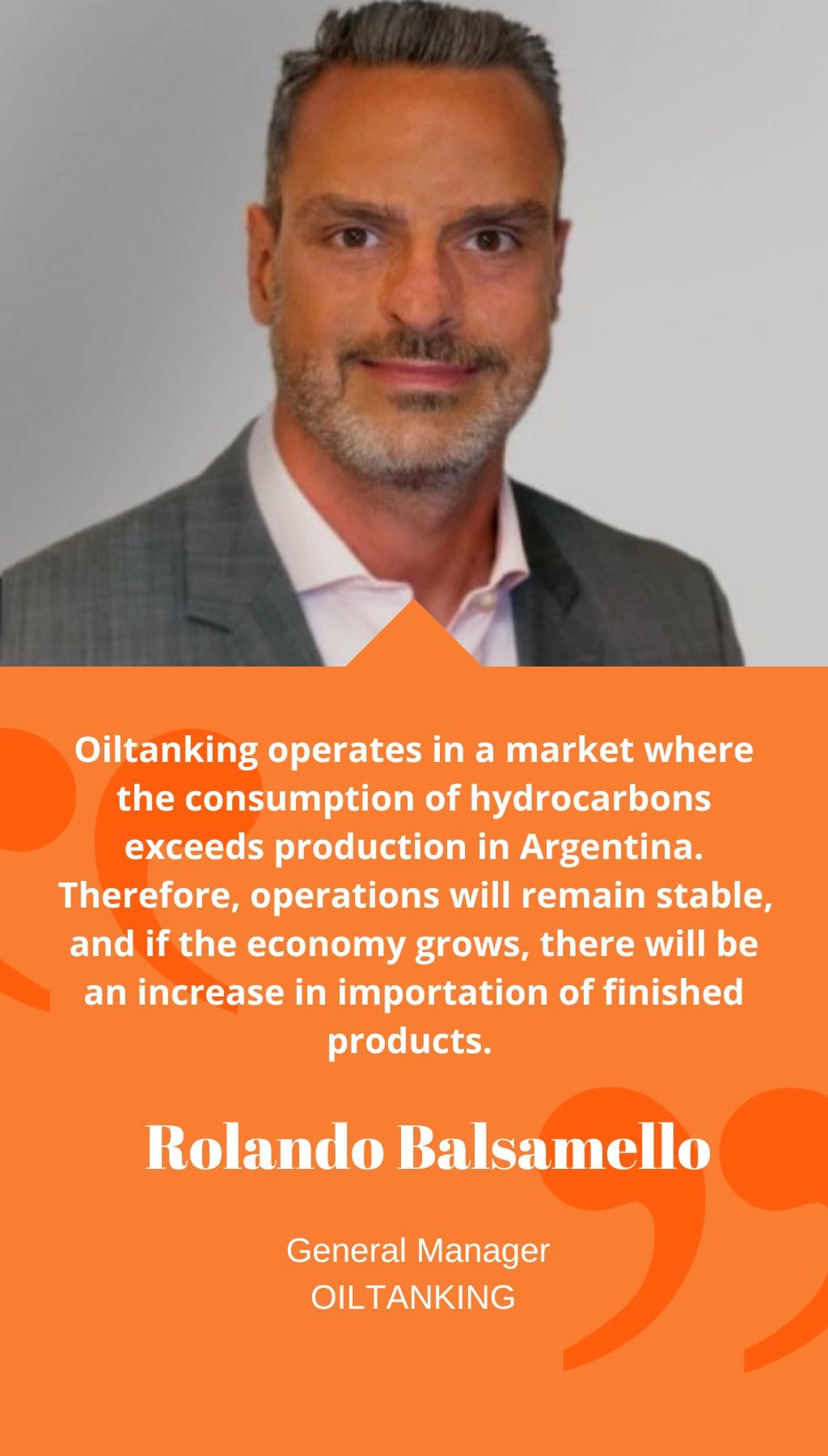
- Argentina | 30 June 2017

Can you please describe the history of Oiltanking in Argentina?
Oiltanking began operating in Argentina during the 1990s when the government privatized several critical assets, including YPF, the terminals in San Jorge´s Gulf and Neuquén’s pipelines, and Puerto Rosales. Oiltanking had access to 70% of the shares of Puerto Rosales, and the remaining shares were managed by YPF. Despite the challenges of managing this project, Oiltanking started to grow by taking advantage of certain opportunities. The company successfully linked the main system to the refinery in Campana and invested $55 million in 2002. In 2009, a major project with Petrobras allowed Oiltanking to link its operation in Puerto Rosales with Bahía Blanca Refinery, adding over 20 million more to the logistics system.
How do market trends affect business for Oiltanking?
Oiltanking operates in a market where the consumption of hydrocarbons exceeds production in Argentina. Therefore, operations will remain stable, and if the economy grows, there will be an increase in importation of finished products. However, market trends do not really affect the company, as the same volume is always operated. The company’s profitability is directly dependent on the Ministry of Energy, which regulates tariffs. Oiltanking evaluates costs impacts, devaluation, inflation, maintenance, and future investments. With this information, authorities should update the tariffs every five years. Operating in Argentina is difficult due to the mix between local currency costs and hard currency ones, but Oiltanking is efficiently handling energy, making smart investments, and looking for the best supplier to deal with costs.
What is the influence of low international oil prices on the company?
The prices that customers pay do not directly affect Oiltanking. The company’s profitability equation involves costs, taxes, inflation, investment, and profitability. Oiltanking’s service involves treating crude oil, preserving it, and dispatching it either to pipelines or tankers that take it to refineries located upriver. The company receives crude oil stocks for payment. Thirty-five percent of the activity is related to marine operations, 35% to pumping, and the rest is related to storage into the terminal. Oiltanking is an international corporation, and the plant in Argentina is ranked 6th or 7th globally. The corporation is looking forward to increasing business in other areas of the country and providing its services to customers involved in the import and export of hydrocarbons.
In terms of local production, what would be the most challenging scenario?
The most challenging scenario for Oiltanking would be if the crude oil produced in Neuquén basin (via non-conventional methods) does not fit the needs of local refineries. This could result in the exiting of this oil from the system through Oiltanking’s terminals, and the compensation for that should be entering into the company’s operation. If this happens, maritime operation will significantly increase.














